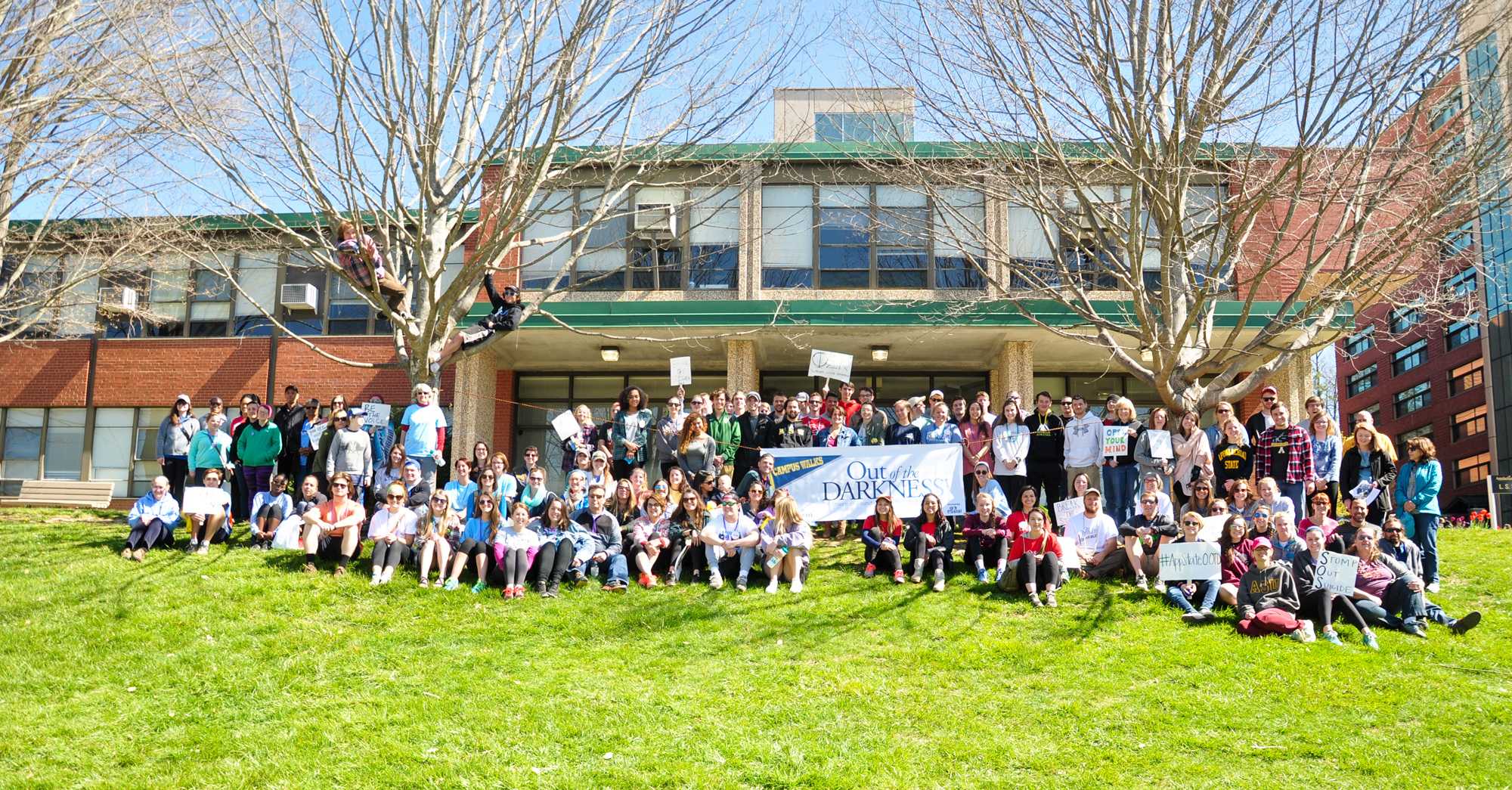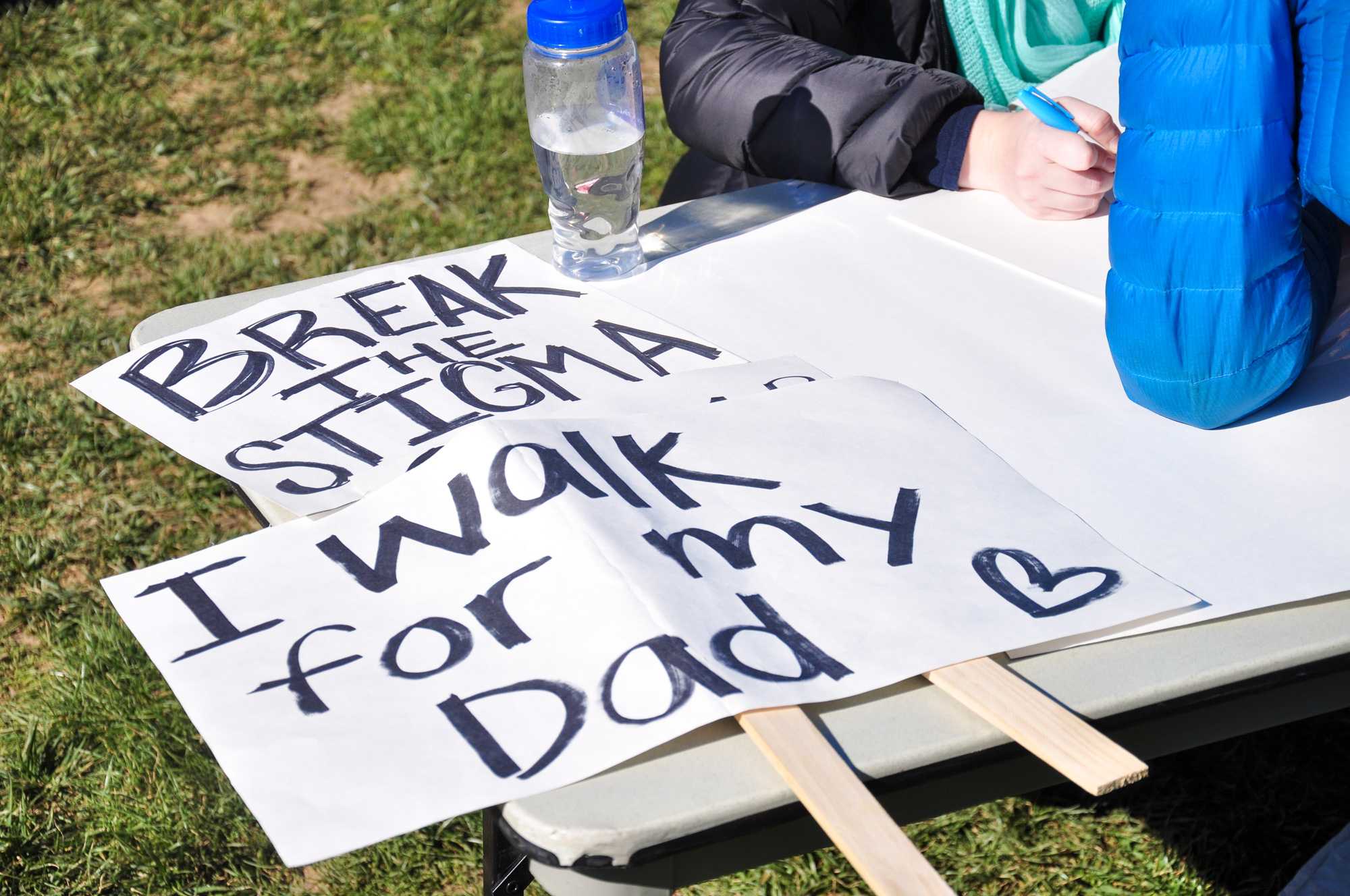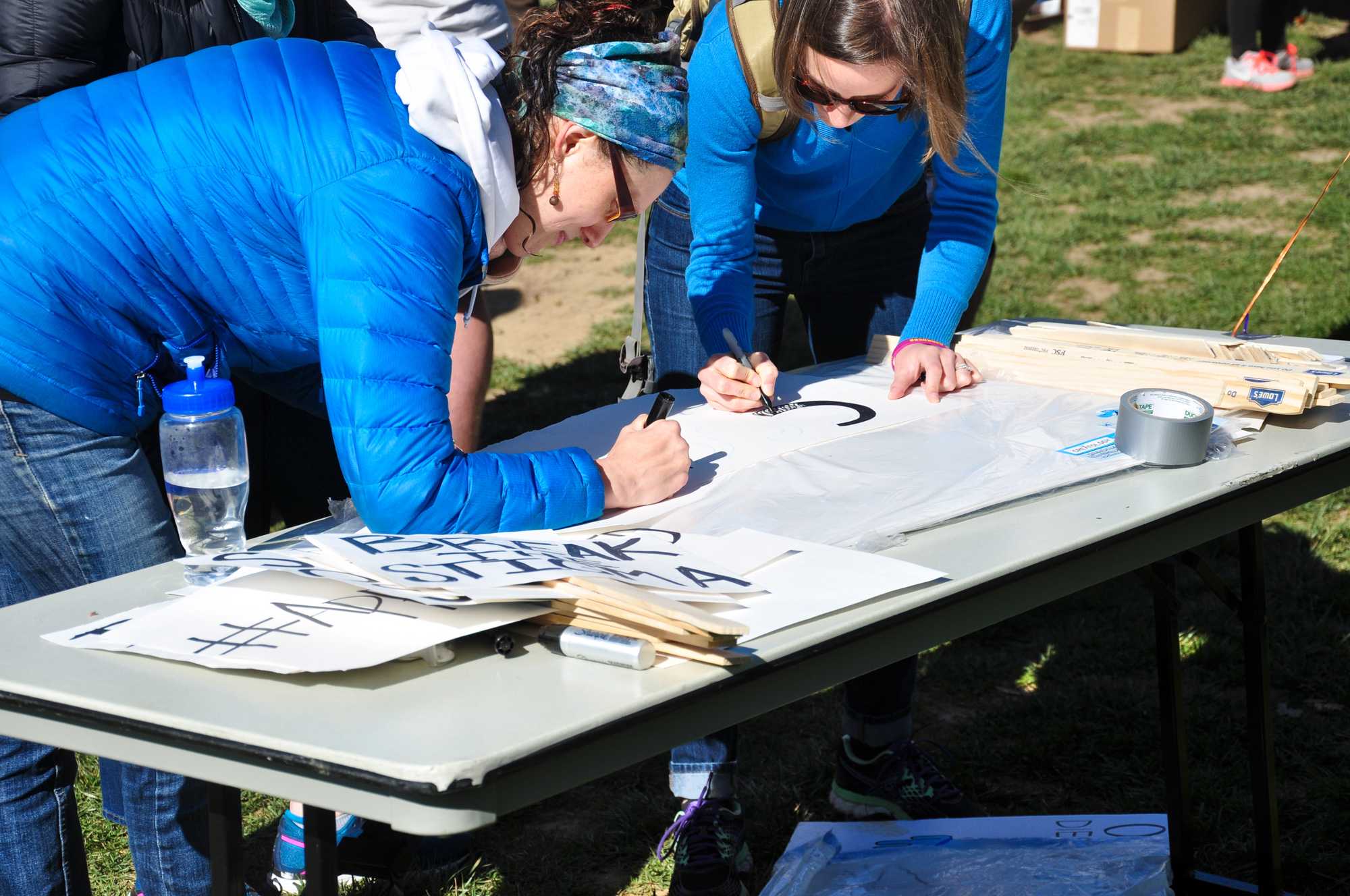Appalachian State University held its second annual Out of the Darkness Walk on Saturday to raise awareness of suicide and to destigmatize depression.
There were 144 students, faculty and community members who walked.
Before the walk began, speakers addressed the participants. Many shared personal stories about their own experiences with suicide and offered advice to people who are battling depression and suicidal thoughts.
Maria Salazar, a junior English major, told the listeners that they are not alone.
“Please do not hesitate to seek help from family and friends, even if you feel like they won’t understand,” Salazar said. “And if you truly feel like there is no one you can turn to, there are resources you can go to that have people that care about you.”
Elisabeth Cavallaro, the suicide prevention coordinator at Appalachian, and Dean of Students J.J. Brown also spoke.
Cavallaro told attendees about the potential warning signs of suicide and how to approach somebody who you think might be considering it.
Cavallaro said warning signs of suicide include talking about what it would be like to die, talking about being a burden to others, increasing usage of alcohol or drugs, acting recklessly, and displaying extreme mood swings.
Brown spoke to the importance of creating a safe and accepting environment for people who might be thinking about suicide.
“We all have a part to play,” Brown said. “It truly takes all of us to be beacons and lights of hope and be vigilant for one another.”
Jodi Clouser, a senior education major who attended the walk, said she appreciated that none of the speakers resorted to overused cliches.
“So often, when people are offering advice about suicide, they tend to say these cliche things that don’t really do anything for someone actually struggling with depression and suicide,” Clouser said. “When you say something like, ‘There’s a dawn after the night,’ that’s nice and all, but it’s the middle of the night for the person going through it.”
Additionally, a number of organizations set up tables at the event, including the American Foundation for Suicide Prevention, Appalachian State’s Counseling Center, Smokey Mountain Center, Daymark Recovery Services, the National Alliance on Mental Illness and Boone Healing Arts Center.
Murray Hawkins, the director of Daymark Recovery Services, said that depression is often viewed as the victim’s fault, but it shouldn’t be thought of any differently than a physical ailment.
“It’s been a misconception for a long time, that if you suffer from depression, it’s a failure of yourself, your beliefs, or your mental or moral fortitude,” Hawkins said. “If someone breaks their ankle, we’re so quick to feel bad for them and offer them support, but if someone is depressed, many people are uncomfortable and don’t want to help.”
Olivia Sanders, a participant in this year’s and last year’s walk, said that the tones of the walks were very different.
Last year, Sanders said emotions were very high and the atmosphere was raw, because the walk was held in the wake of a number of student deaths. This year, Sanders said the overall feeling was much more contemplative.
“Now that we’re a year removed from all that, we can be more reflective,” Sanders said. “Last year, we were all just so emotional, but now hopefully we can talk about it.”
By Friday night, the event had raised close to $7,000 for local support and preventative measures.
One of the things the money will go towards is implementing an online risk assessment training, Sami Damsky, the event’s coordinator said.
“Suicide is obviously a huge problem that isn’t going away,” Damsky said. “Working to reduce the rates of suicide is incredibly important, so to have something like this, which makes it much easier for people to get help anonymously from their computer is a big step.”
In Salazar’s speech, she stressed to everyone just how precious human life is.
“My experience, which no one should have to go through, taught me that everyone is here for a reason, and to never take your precious time on this planet for granted,” Salazar said. “Everyone is so different and special, and there’s only one you.”
Story by Tommy Culkin, Senior News Reporter



